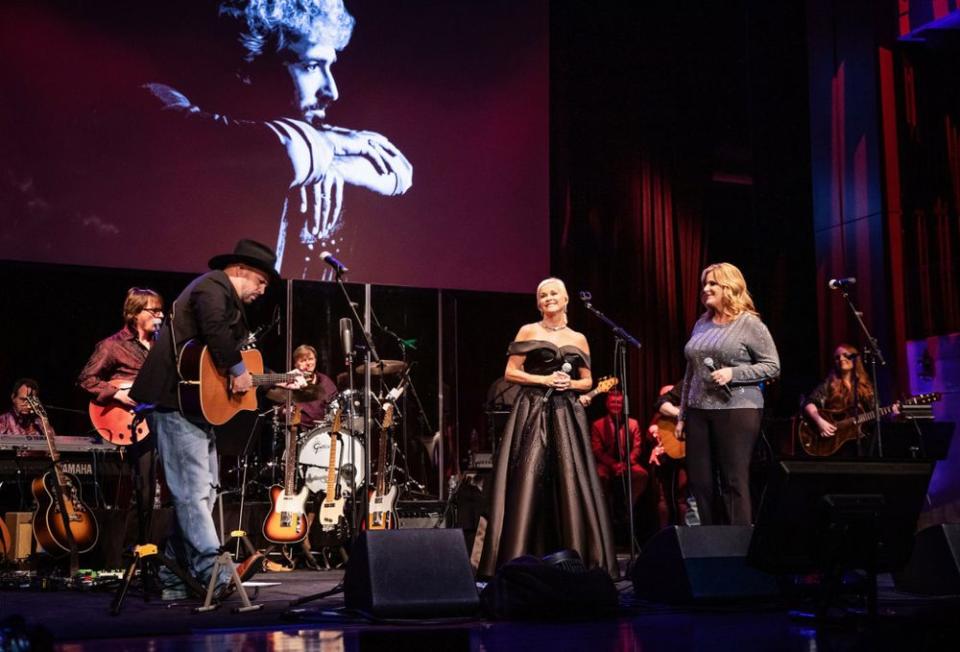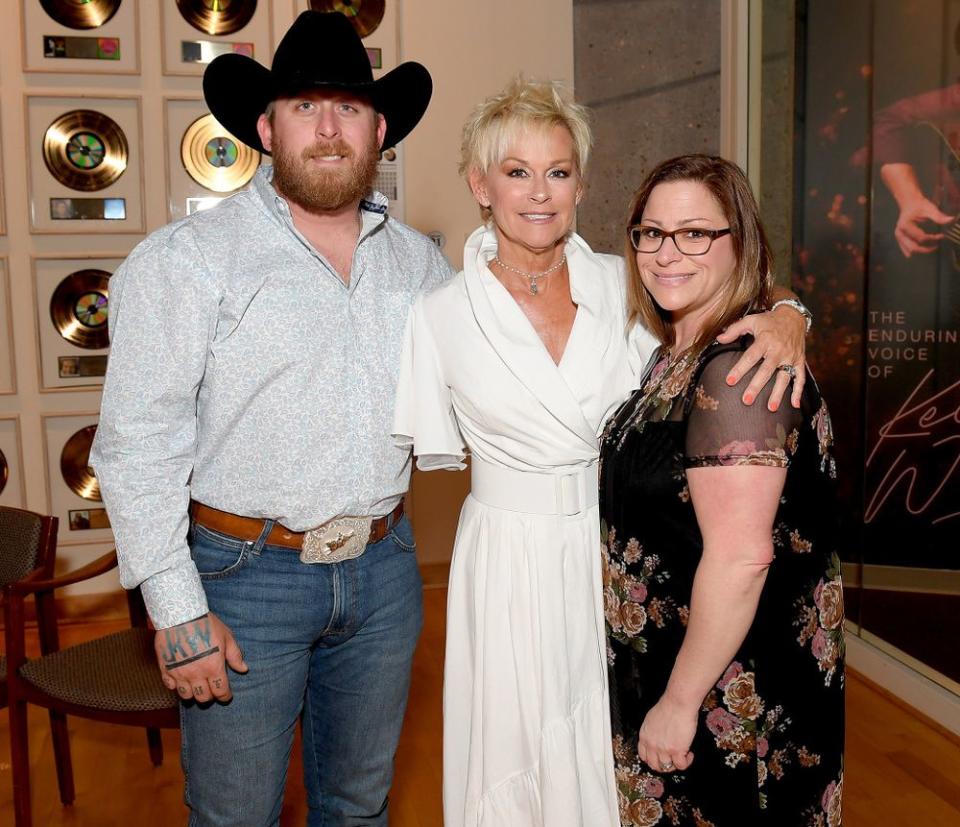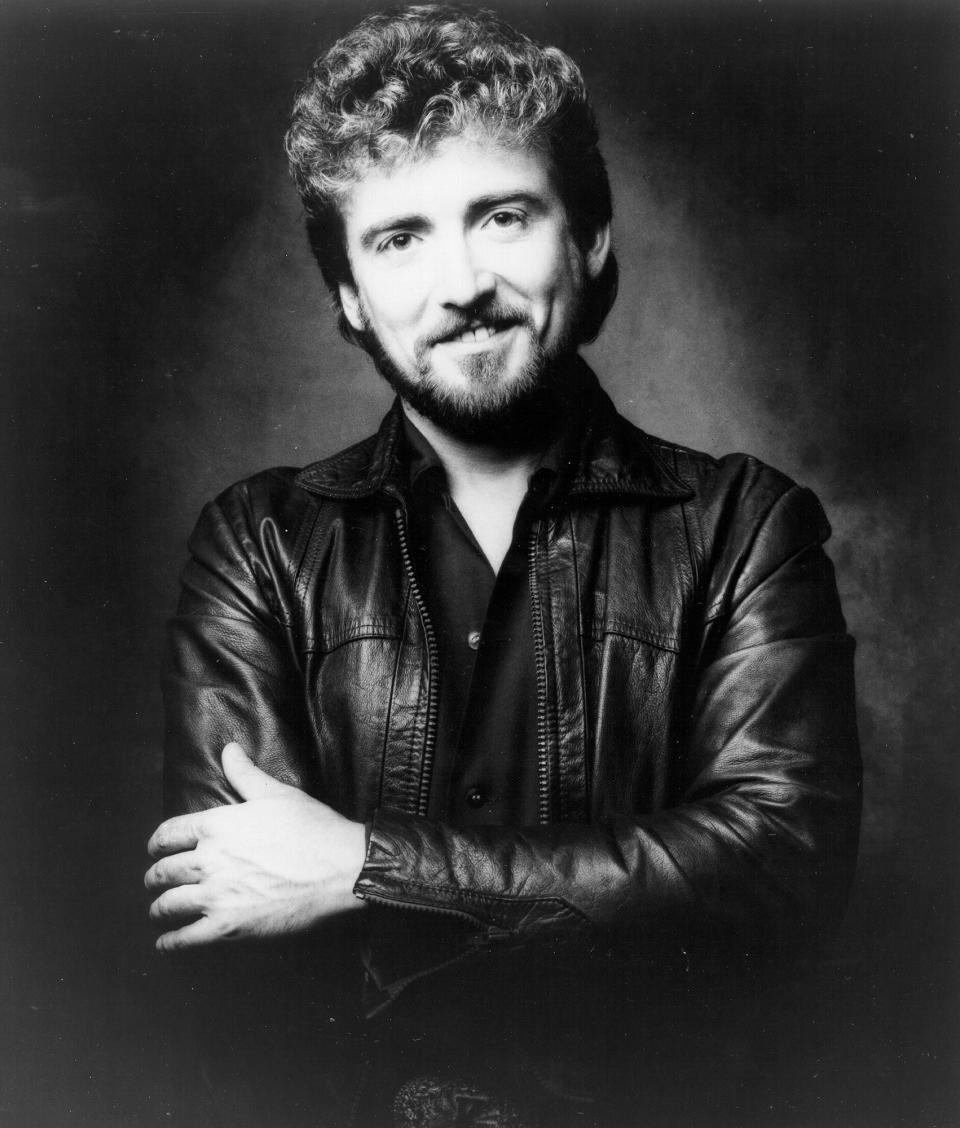Garth Brooks, Museum Exhibit Honor Keith Whitley's Legacy: 'There's a Name Missing' in Hall of Fame
Thirty years have passed since the much-too-soon death of Keith Whitley, but his widow, Lorrie Morgan, says she still feels the country legend’s presence “all the time.”
What country fan can’t relate?
Indeed, Whitley’s spirit has been kept alive by a long succession of major artists who’ve been profoundly influenced by the groundbreaking Kentuckian, whose solo recording career spanned just five brief years before his death from alcohol poisoning in 1989 at the age of 33.
“Keith made an impact on everybody that he ever came in contact with,” says Morgan, 59, who had her own string of hits in the 1990s.
Now Nashville’s Country Music Hall of Fame and Museum is celebrating Whitley’s significance in a brand-new exhibit, and last week, 20 artists — including Morgan and Hall of Famers Garth Brooks and Ricky Skaggs — paid tribute to Whitley at a memorial concert in a museum theater on the 30th anniversary of his death.

Brooks has made no secret he won’t rest until Whitley joins him in the Hall of Fame. In fact, the country king balked in 2012 when he learned he’d been voted into the hall before three of his greatest influences.
“I said, ‘Whitley’s not here,’” he recalled to PEOPLE in 2018. “‘[Randy] Travis is not here. Skaggs ain’t here. I don’t know what to do, because I’m embarrassed.’”
On Thursday night at the tribute concert in the museum’s CMA Theater, Brooks noted he was the one who’d “been lucky enough to induct” both Travis, in 2016, and Skaggs, in 2018, into the Hall of Fame during a ceremony in the same space.
RELATED: Garth Brooks and Ricky Skaggs Get Upstaged at Hall of Fame Ceremony — By a Mandolin!
“There’s a name missing,” Brooks said before singing two of Whitley’s signature songs,
and
“We all know what it is. We need to do it.”
Of course, Morgan, who married Whitley in 1986, wouldn’t disagree. “I always knew Keith would be a big, big pillar in country music,” she told PEOPLE before the concert, “and I knew Keith had staying power. It was in his blood. He was born to sing. He was born to let that voice ring out.”
Besides Brooks, many other country stars cite Whitley as a pivotal influence, including Brooks’ wife, Trisha Yearwood (who also sang at the memorial concert), Hall of Famer Alan Jackson, Clint Black, Travis Tritt, Alison Krauss, Tim McGraw, Dierks Bentley, Blake Shelton, Chris Young, and Miranda Lambert
Whitley’s death inspired Vince Gill to write country classic
“Go Rest High on That Mountain.”
McGraw has often drawn attention to the fact he arrived in Nashville on the very day his hero died, and he credits Whitley’s unsuccessful battle with alcoholism as a factor in helping him beat his own addiction. Young has said that he signed with RCA Records, among other reasons, to be on the same label as Whitley.

The museum exhibit draws attention to the Whitley legacy, the culmination of a musical journey that began when he made his radio debut at age 8. Whitley first made his mark in bluegrass: In the mid-1970s, he and Skaggs joined the legendary Ralph Stanley and his Clinch Mountain Boys, and Whitley then went on to play with J.D. Crowe & The New South. By the mid-1980s, Whitley, along with Skaggs, Travis, George Strait and Reba McEntire, were leading the charge to revive traditional sounds in country.
Morgan hopes Whitley is remembered not just for his soulful baritone and the music it made but also for his character. “He was gentle,” she said. “He was fun. He just loved life. He loved his family. He was just a truly good man.”
Yet, she acknowledges, Whitley also had “demons” that propelled him on solo drinking benders. Though she witnessed alcohol’s effect on her husband, Morgan said she never saw him take a drink, and their two children never saw their father drunk. “They never saw that dark side of Keith,” she said, “and that’s one thing I’m grateful for.”

Morgan said she married Whitley hoping that her love would be an antidote for his addiction, “but it just wasn’t enough.” He died on May 9, 1989, while she was traveling to a concert date in Alaska.
At the time of his death, Whitley had already scored three No. 1s with “Don’t Close Your Eyes,”
and
“When You Say Nothing at All.”
The industry honors, however, all came posthumously: two CMA awards and a special ACM Icon Award. A
produced a top 5 hit for Alison Krauss with
“When You Say Nothing at All,”
which won the 1995 CMA single of the year. Whitley’s songs continue to be regularly covered in singing competitions and by name acts.
For Morgan, experiencing this enduring legacy is both “happy and sad.”
“I wish he could have seen this,” she said. “He would be so blown away. He’d be like, ‘Aw, they ain’t gonna sing my songs!’ He never dreamed this would happen to him. He never knew he was as great as he was.”
The museum exhibit, “Still Rings True: The Enduring Voice of Keith Whitley,” opened on May 3 and will be on display through April 5, 2020.
